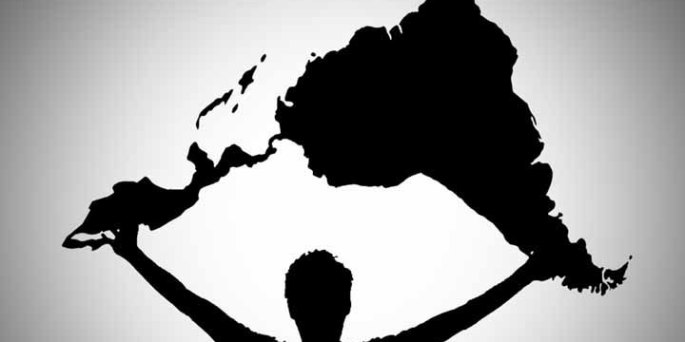
Continental Drift
MIAMI.- By the time you read this, the U.S. midterm elections will be over. Assuming the polls and pundits are right, the Republicans will control both houses of Congress. While polls have been wrong before, and GOP control of the Senate is not a sure thing, even Congressional Democrats are conceding the Republicans will prevail. Headline in last Sunday’s Miami Herald:”Both parties see elections tilting to Republicans.”
You don’t have to take it from the Herald or the polls. Steve Israel, Democratic Congressman from New York, says: ”It’s a grim environment.” He should know. Israel is chairman of the Democratic Congressional Committee. The Democrats look like a deer caught in the headlights, and they know it. And just when you thought the country couldn’t move further to the right, it will.
All this is in stark contrast to what has been taken place in the other half of the continent. For instance Brazil, the giant South American nation, has just reelected the candidate of the left, Dilma Roussef of the Workers Party, to the presidency. Admittedly, Rousseff’s margin of victory was small–she won with 51.6 percent of the vote, a fact that the right has been highlighting incessantly.
Ironically, Rousseff’s victory is a landslide compared with George W. Bush’s in 2000. Bush actually lost the electoral vote by 600,000 and still won the presidency under the archaic U.S. electoral system. Rousseff’s defeat of the candidate of the right is all the more impressive given the economic slump brought on by external factors, including the fall in commodity prices and the economic slowdown in China, which used to buy more Brazilian commodities at a higher price.
Rousseff’s triumph ensures sixteen years of socialist rule in Brazil that started with the election of Lula da Silva twelve years ago. In effect, Brazil has emerged as a sort of political polar opposite of the United States, all while remaining a liberal democracy. By becoming a global economic power while under socialist rule, Brazil has defied a longstanding dogma of the Republican party and many others in the establishment in the United States and Europe: that one has to beggar the poor and coddle the rich to attain economic growth. Instead, Brazil followed policies that have moved millions of the poor into a new middle class and improved the lives of those who are still poor. Ironically, even the Brazilian rich have become richer during this era of socialist rule.
Brazil’s defiance of the iron rules of capitalism in the post-Soviet era has irked the usual suspects in Latin America, such as the towering intellectuals (in their own mind) Carlos Alberto Montaner and Alvaro Vargas-Llosa. It also has infuriated the hard right. An article on the web site the PanAm Post conveys the reaction from that quarter. The headline screamed: “Rousseff Delivers Victory for Despotism in Latin America: Falling Markets Signal Trouble ahead for Brazilian Economy.” Despotism, after Rousseff beat opponents with opposed ideologies in two elections? Of course because in this view the markets, which are falling because they dislike Dilma, are the final arbiters of democratic legitimacy, not the people’s votes.
What is more alarming for such right-wing sectors, and what brings into focus the continental scale of the political drift of north and south, is that Brazil is not an isolated case. Bolivia’s Evo Morales, frequently verbally savaged and mocked in the global North, just won a landslide reelection to a third term. In Uruguay, the leftist Broad Front led by Tabaré Vázquez is poised to win a run-off election after getting more votes that the two parties that came behind it combined. In Ecuador, Rafael Correa may succeed in changing the constitution to allow for an indefinite number of reelections. Venezuela won a seat at the UN Security Council despite U.S. objections. And in the General Assembly on the issue of the embargo Cuba won the most crushing vote yet with only Israel voting with the United States. There’s more, but I’ll sum it up with the late American novelist Kurt Vonnegut’s pithy mantra: “And so it goes.”
The reasons for the divergent trajectories the United States versus much of South America have embarked upon in recent decades are too complex to be properly analyzed in the remaining space. I will just float one provocative hypothesis as a possible factor in many. To terribly oversimplify the reality, let’s say thamajor reason that in the northern end of the continent the markets have more power than the people and in much of the southern the people have more power than the markets is that countries like Brazil are more democratic than the United States.
Most Americans would find that impossible to accept, and I won’t try to debate the issue here. Instead, I will just list some of the factors that limit democracy in America.
The Electoral College vote, which trumps the national popular vote; the great power of the Senate, an undemocratic body in all forms of ways, including the fact that a demographic midget like Montana has as many votes as California; unlimited corporate money in elections; and the ideology of aggressive self-reliant individualism, signified most clearly in the divine right of gun ownership, versus the ethos of cooperation and solidarity.

